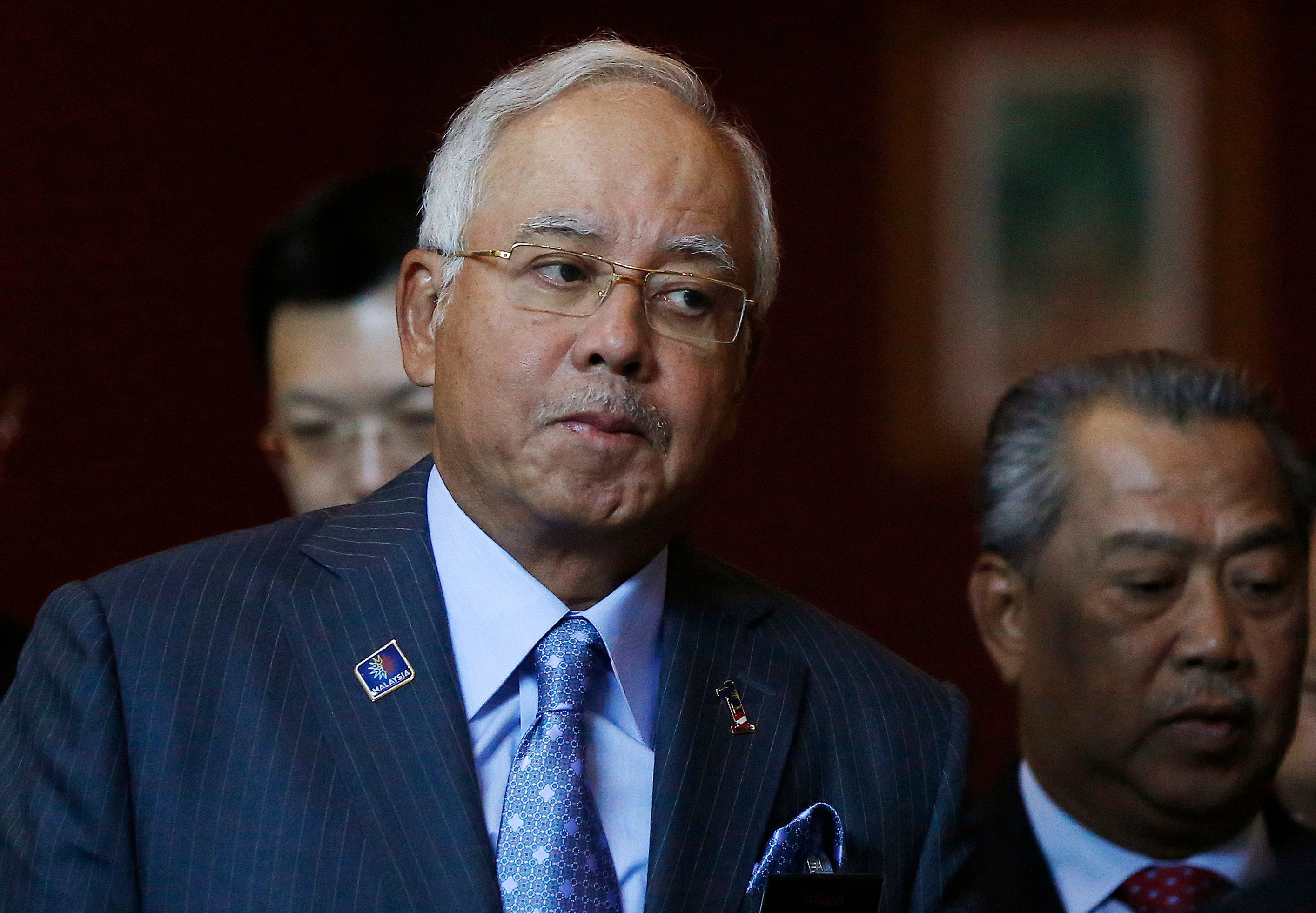What We’re Watching: Former Malaysian PM sentenced, Turkey backs down on sea plans, Europe quarantines Spain
Former Malaysian leader gets 12 years: A Malaysian court on Tuesday sentenced former prime minister Najib Razak to 12 years in prison for corruption related to the multibillion-dollar 1MDB state investment fund scandal, which brought down his government 2 years ago. According to the judge, Najib received more than $700 million out of the at least $4.5 billion that 1MDB looted from state coffers to pay for luxury hotels, yachts and even the Hollywood film "The Wolf of Wall Street." Although he was convicted of using part of the money to buy his wife a $27 million pink diamond necklace and to fund his political campaigns, the former PM insists he was duped by fugitive financier Jho Low and his partner Riza Aziz, Najib's stepson. So, what happens now? While the sentence is a permanent stain on his record, Najib is out on bail and will not go to jail until he exhausts the appeals process. Also, his political party returned to power in February and is now the biggest bloc in the current Malay nationalist alliance government, while Najib himself — who remains immensely popular among many ethnic Malays — is an elected MP and will only be disqualified if the conviction stands. The bottom line: whether or not (or even if) he ends up behind bars will test how serious Malaysia is about rooting out corruption.
Hopeful news from the Med and Aegean: Turkey and Greece are old rivals who have divided the island of Cyprus. Greece is a member of the EU, and Turkey is not. But the two countries are also NATO allies, and their governments have tried at times to improve relations in recent years. This summer, however, tensions have surged again as Turkey claims the right to drill for oil and gas in the eastern Mediterranean — energy discoveries there have boosted Israel, Egypt, and EU member Cyprus, and Turkey wants a piece of the action — and to explore natural resources in the Aegean Sea, most of which Greece claims for itself. When Turkey announced it would send a research vessel into contested waters last week, Greece and France called for sanctions against Turkey, and Germany hinted it might follow. For now, Turkey has de-escalated tensions by promising to halt drilling during negotiations. EU officials say tensions have begun to ease, but this is a story to keep an eye on.
Stay away from Spain: Several European countries have implemented travel restrictions for citizens traveling to Spain after the country reported several fresh COVID-19 outbreaks. This is a huge blow for the Spanish tourism industry, which accounts for about 15 percent of Spain's GDP and was hoping to recover at least part of its pandemic-related losses during this summer season. Ironically, when British Prime Minister Boris Johnson announced that the UK would impose a two-week quarantine (now revised to 10 days) on all travelers from Spain, his transport secretary was on holiday... in Spain. The Spanish government also gave mixed signals: Prime Minister Pedro Sánchez hit back at Johnson, calling the UK's move an "error," while Spain's top epidemiologist mused that less British tourists coming will probably help contain the spread of the coronavirus throughout Spain. The bigger picture is that the new restrictions against Spain highlight the risk of countries rushing to reopen for tourism without clear (and reciprocal) policies on who is allowed in, and how. Other tourism-dependent European countries like France, Italy or Croatia will surely be monitoring what happens to Spain so they don't end up in the same situation.
